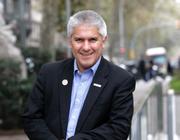Abstract
In 2006, St. Jude Children’s Research Hospital (Memphis, Tennessee) began developing a school-based outreach program known as the St. Jude Cancer Education for Children Program (SJCECP). The aim of this program is to teach Memphis-area children about cells, cancer, and healthy habits that can prevent the development of cancer in adulthood. Initial plans for delivery of the program was for St. Jude staff to present the program at local schools. This plan for disseminating instruction was not feasible due to the limited availability of St. Jude staff. As a next step, during the 2012–2014 academic years, we conducted a study entitled SJCECP2, utilizing the SJCECP curriculum, with the objective of evaluating the impact of the educational intervention on knowledge acquisition and retention among fourth-grade students participating in a modified, teacher-led version of the program. Eighteen teachers and 426 students from 10 local schools in the greater Memphis area participated in the program evaluation. This study used a single-group, pre-test/post-test design to determine the impact of the SJCECP intervention on changes in knowledge scores among fourth-grade students. Testing was on cells, cancer, and healthy living. The mean scores increased from 6.45 to 8.12, 5.99 to 7.65, and 5.92 to 7.96 on cell, cancer, and health behaviors units, respectively (all p values <.001). Preliminary evidence suggests that the SJCECP2 intervention is a useful tool for teachers to improve student knowledge of knowledge of cells, cancer, and healthy living concepts at the fourth-grade level.
PubMed: 26939672
